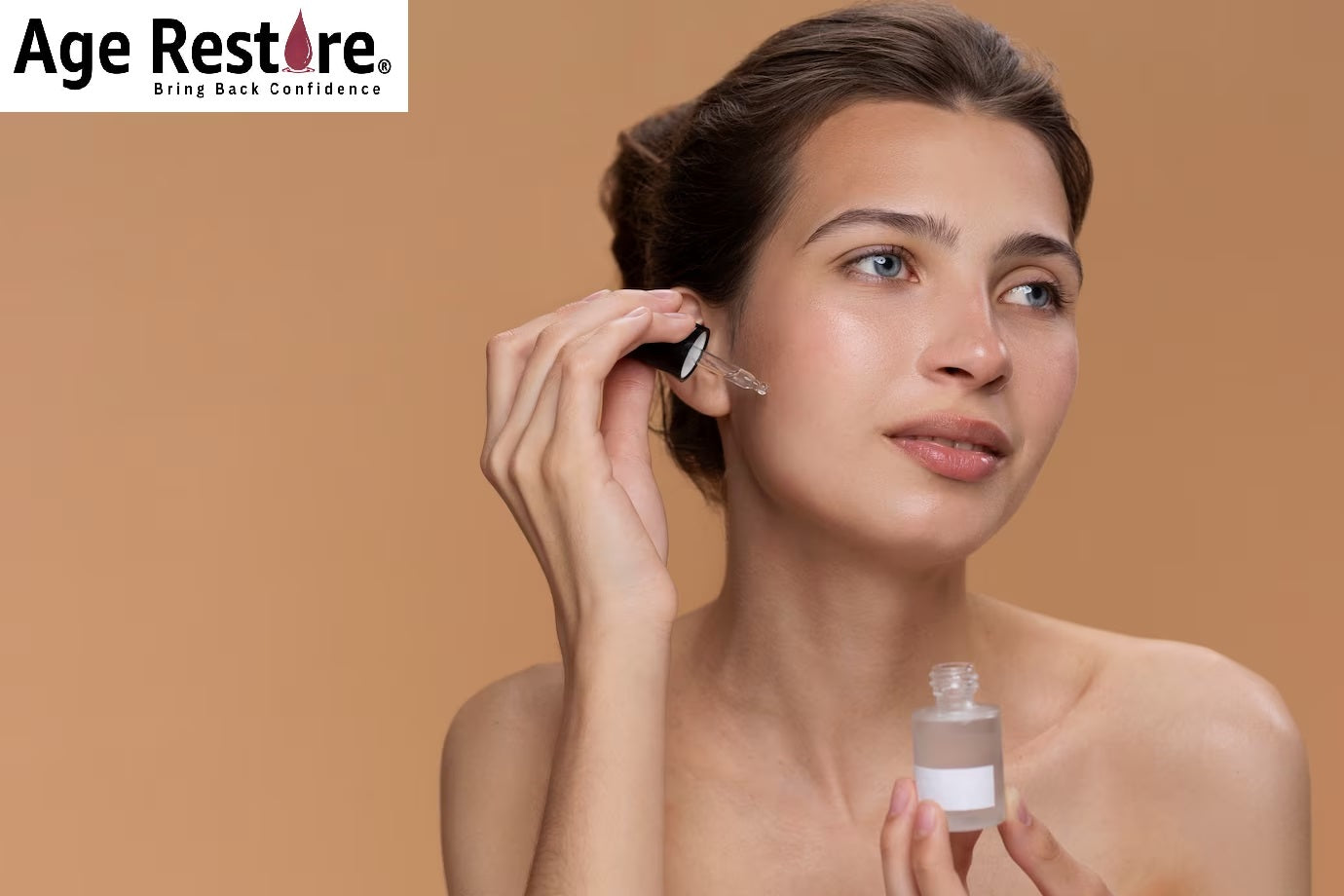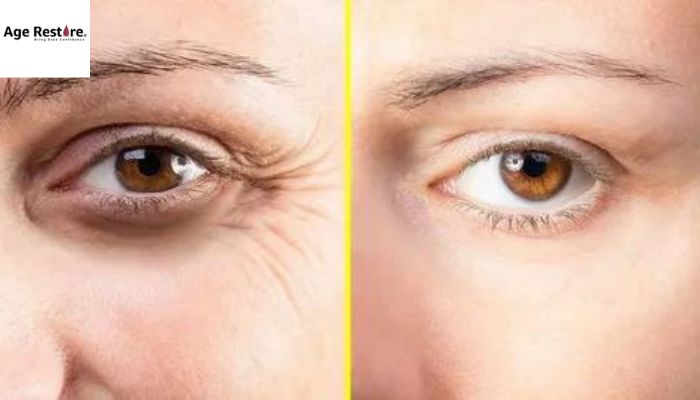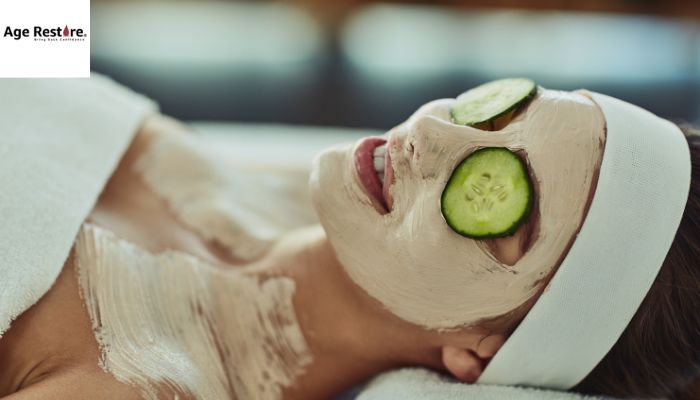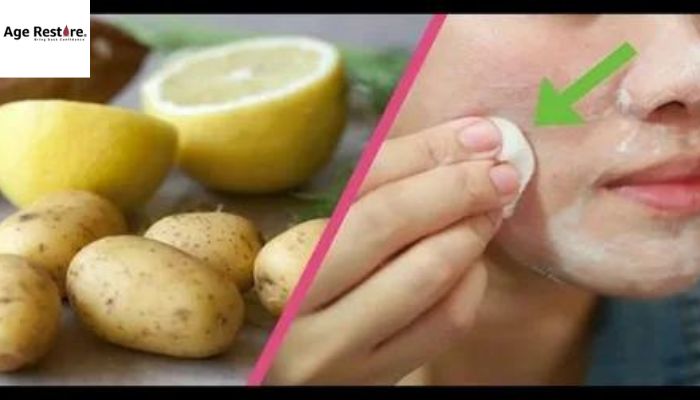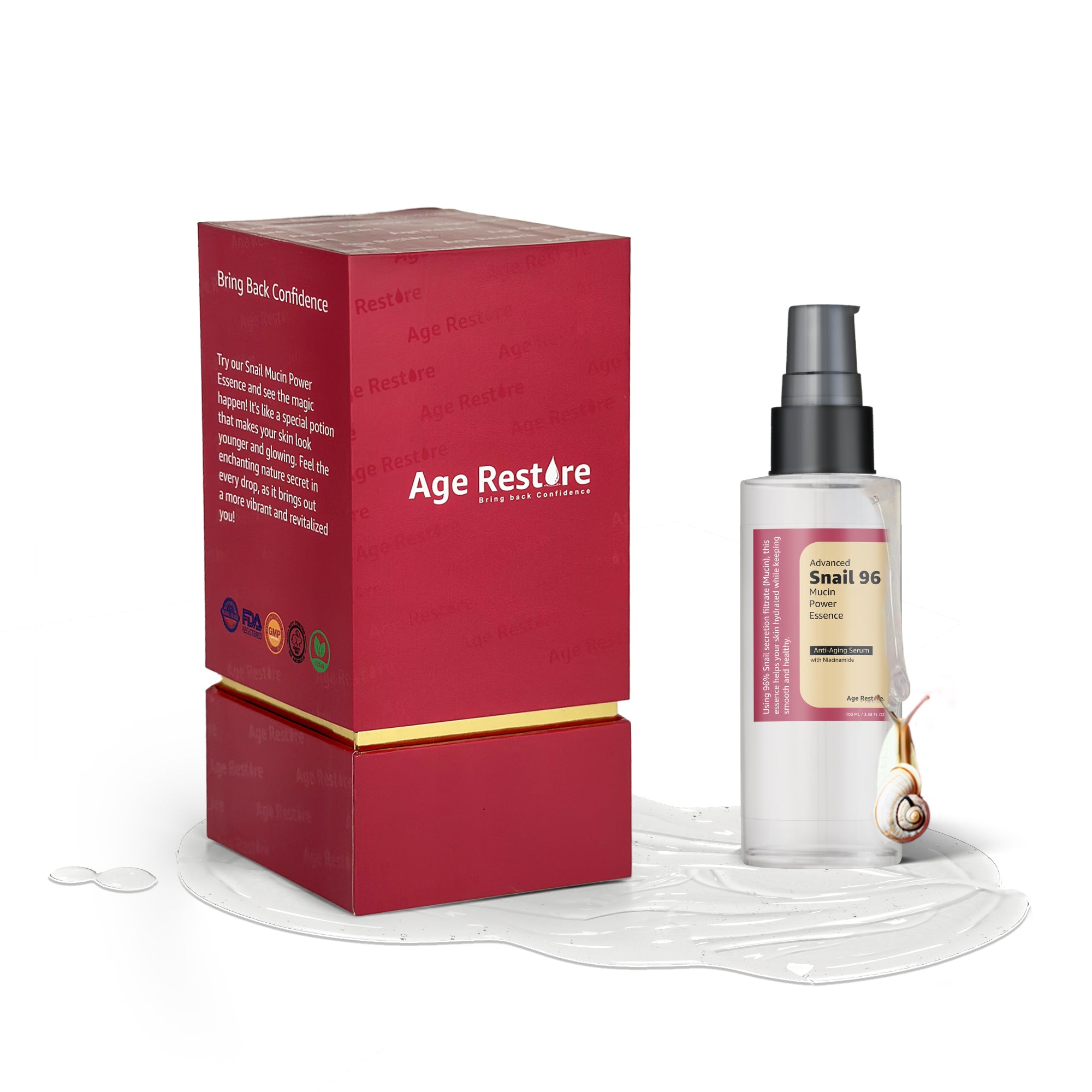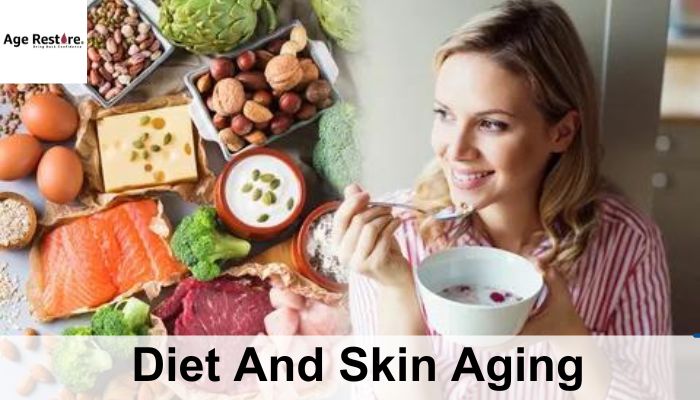
Diet And Skin Aging: What's The Deal There?
Aging Skin Isn't Simply the Result of Growing Old And Too Much Sun Exposure; Your Diet Can Also Have an Effect On How Fast It Ages...
Time may not be on your side when it comes to skin aging (known as intrinsic aging), but there are ways you can slow its progress. Pollution, sun damage, stress levels, lack of sleep, and your diet all play major roles in how quickly and how well skin ages.
We take great pride in providing comprehensive skin education. To date, we have covered most external factors that contribute to extrinsic aging (external influences that impact upon skin's youthfulness). However, one area which remains unknown to us is diet.
At first, glance, eating a well-rounded diet that's rich in fiber and protein while low in carbs and fat seems like it should be easy, but knowing which foods you should and shouldn't consume and making the change are two very different things. Once you understand what certain culprits can do to your skin, understanding their impact might make you question if that second helping of key lime pie deserves that second taste!
Below are five of the biggest dietary sins contributing to skin aging, along with how to select better alternatives. Don't feel as though we expect you to completely cut these foods out of your diet - that would be unreasonable! Simply aim to be aware of what you consume - something we know you're capable of!
Skin Sin #1: Sugar
Studies show that excess sugar consumption leads to the accumulation of advanced glycation end products (AGEs). Glycation is a process in which your skin creates harmful compounds called advanced glycation end products (AGEs), which damage skin cells by binding with fats and proteins like collagen and elastin to cause stiffening, weakening, and eventually performance problems in these crucial structures. When sugar has its way with your cells it causes their function to decline leading to fine lines, wrinkles, sagginess, or dullness - no fun at all!
Young bodies have the capability of fighting off oxidative stress caused by advanced glycation end products (AGEs), producing fresh collagen and neutralizing free radicals; but as we age, this ability declines significantly; which explains why eating too many sweets speeds up skin aging significantly faster.
Make The Switch: Switch out refined white sugar and corn syrup for honey when possible, and snack on antioxidant-rich fruit like blueberries, blackberries, or raspberries as an anti-sweet craving-buster.
Add topical antioxidants into your skincare routine to combat free radical damage and start protecting yourself against free radicals. Our recommendation would be Niacinamide Facial Serum as it's both gentle yet still highly effective compared with more potency treatments like vitamin C and retinol.
Visit our Facial Serums
Salt as Skin Sin #2
A diet high in salt can quickly lead to eczema flare-ups, acne breakouts, and puffy under-eye bags - not to mention dehydration for your poor complexion! Too much sodium depletes all moisture from your skin which ruins its barrier function and causes dryness, itching irritation flakiness - as well as inflammation which weakens collagen - all essential elements for youthful, plump-looking skin.
Make The Switch: While salt is necessary in small doses for human health and well-being, cutting back completely would be impossible. Instead, reduce salt while cooking, decrease cheese consumption, cut down processed meat intake, and switch from flamin' Hot Cheetos to unsalted nuts instead for snacking pleasure.
Skin Sin #3: Fried Food
Fried and processed foods such as burgers, fries, and brats not only increase your bad cholesterol levels and lower good ones simultaneously but they also cause the formation of advanced glycation end products (AGEs). But unlike sugar's effects on your skin, fried food causes its own set of AGEs when exposed to high heat temperatures during its preparation - these AGEs don't form internally but instead, form in food itself when heated at extreme levels for too long - leading to premature signs of skin aging on skin surface level aging!
Studies have demonstrated that dry heat may increase AGEs by as much as 100-fold when cooking food with dry heat, such as baking, broiling, roasting, or barbecuing. Frying may be especially harmful; especially for red meat (such as bacon). It contains up to 10x more AGEs than microwaved bacon! Dang.
Make A Switch: If you can't give up fried food altogether, at the very least consider switching regular fries for sweet potato fries (ideally baked). In addition, choose lean, white meat like chicken or turkey over processed meat such as hot dogs and beef patties.
Skin Sin #4: Refined Carbs
Once again, refined carbohydrates (white bread, pasta, and rice) turn into glucose when digested by your body causing serious glycation damage and subsequent skin issues. So stop indulging - reduce refined carb consumption.
Make The Switch: All carbohydrates when digested become sugar, but good carbs like wholemeal bread and brown rice produce far less and do it more slowly, helping you maintain younger-looking skin. Furthermore, these "good" carbs contain more fiber and B vitamins which provide superior nutrition benefits.
Skin Sin #5: Dairy
Dairy can be an undisputedly controversial source of essential minerals like potassium, calcium, and zinc as well as vitamins A, B12 and D for your health, making it a vital dietary staple for the wellbeing of your skin. But while many individuals tolerate dairy without experiencing adverse side effects or lactose intolerance issues; others experience lactose intolerance which increases inflammation leading to free radical damage; these free radicals break down collagen and elastin while speeding aging processes and giving your complexion an overall "meh."
Make the Switch: If dairy could be contributing to your skin issues, try switching up to alternatives such as almond milk, vegan cheese, and coconut yogurt as potential solutions.
Note: A healthy, well-rounded diet should always be prioritized, and cutting out certain essential foods - even those considered unhealthy such as fast food - could have serious repercussions for one's health. Therefore, consult your doctor or dietician before undertaking anything drastic.

